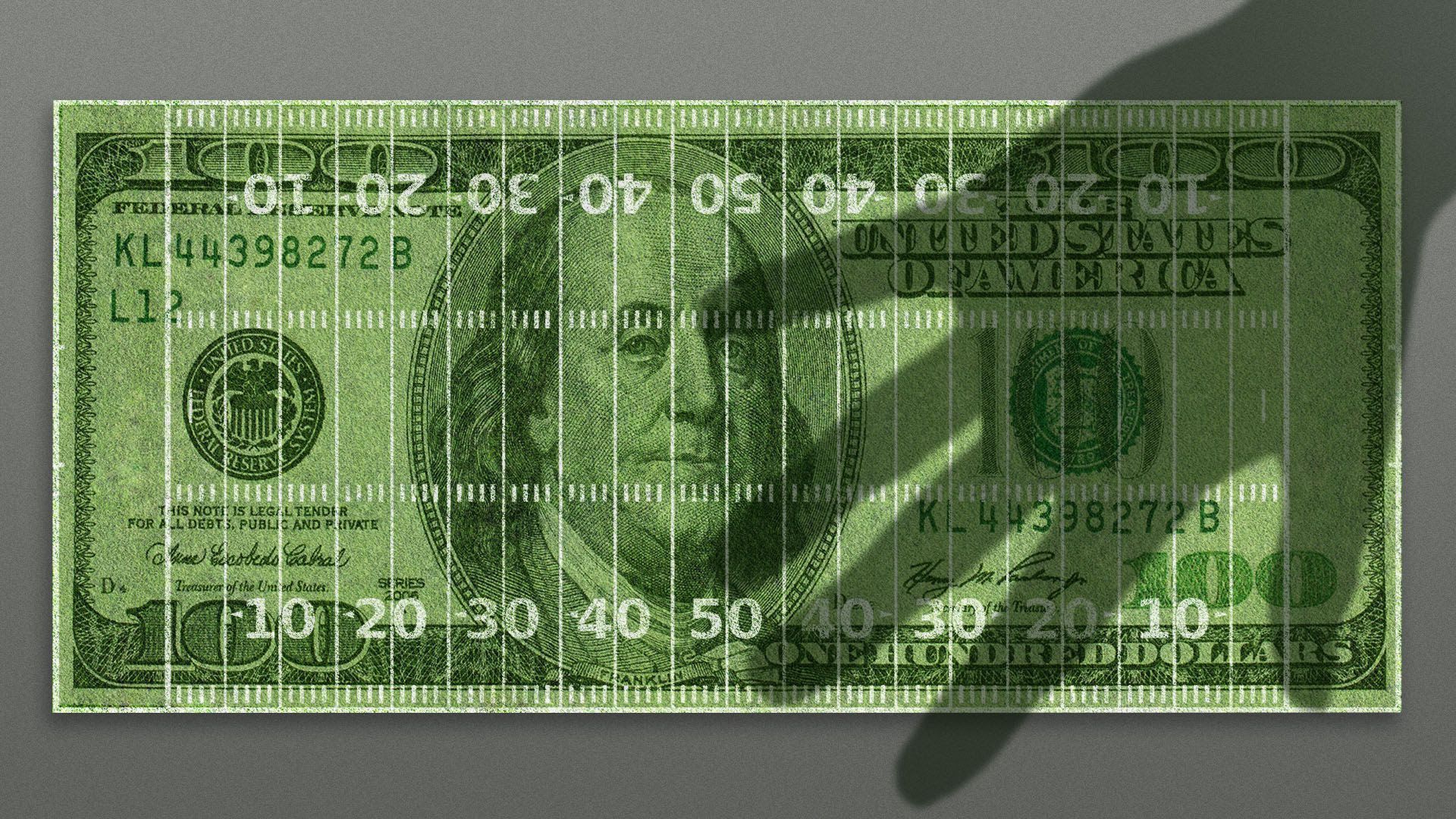The fleeting facade of amateurism in college sports
Dion Rabouin, Kendall Baker

Illustration: Sarah Grillo/Axios
If football and men's basketball players at Power 5 colleges were paid under collective bargaining agreements like their professional peers in the NFL and NBA, they would earn annual salaries of $360,000 and $500,000, respectively.
Driving the news: That's according to a new study released by the National Bureau of Economic Research, which also estimates that high-profile athletes like quarterbacks ($2.4 million per year on average) and every starting player on a basketball team (between $800,000 and $1.2 million per year) would earn significantly more.
Why it matters: The study finds that college athletics' amateurism rules create a system that transfers money away from poorer, largely Black students to wealthier, mostly white students, coaches and administrators.
By the numbers: Less than 7% of the revenue generated by football and men's basketball at FBS schools is paid to its athletes in the form of scholarships and stipends for living expenses.
By comparison, NFL and NBA players receive approximately 50% of the revenue generated by their athletic activities as salary, even though college athletics have generated more in ticket sales since 1999.
The combined revenue of Power 5 conferences increased by nearly 260% from 2008 to 2018, while over the same time period, revenues for the NFL and NBA grew by approximately 90% and 110%.
Between the lines: FBS schools typically field men's and women's teams in roughly 20 different sports, but 58% of total revenue comes from football and men's basketball.
That money goes to coaching staffs and athletic departments, and supports non-revenue sports, whose athletes often come from wealthier backgrounds.
Non-revenue-generating athletes come from neighborhoods with average incomes 37% higher than college football and basketball players, according to the study.
The big picture: College football's pandemic response has catalyzed the #WeAreUnited movement, with athletes threatening to withdraw their labor and laying out plans to create a players' association.
What to watch: While no legislation has been passed to pay college athletes directly, multiple states have passed bills that will soon allow them to profit off their name, image and likeness.
So, while a star QB in Florida won't earn millions of dollars in salary, he could earn hundreds of thousands of dollars through sponsored social media posts alone starting in July.
The bottom line: "While intercollegiate sports are often described as student activities undertaken by amateurs, the economic reality is that athletic departments have developed into complex commercial enterprises that look far more like professional sports organizations than extracurricular endeavors."
No comments:
Post a Comment